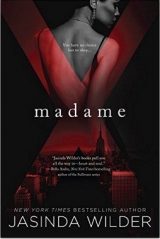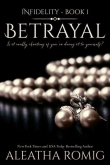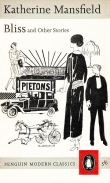
Текст книги "Madame X "
Автор книги: Jasinda Wilder
сообщить о нарушении
Текущая страница: 8 (всего у книги 17 страниц)
NINE
You stand alone outside my door, hands stuffed in hip pockets, hair slicked back, wearing a sleek, slim tuxedo with a narrow bow tie at your throat. Handsome, young, confident. Debonair.
You could be Jay Gatsby.
“Madame X. Good evening.” You lean in, kiss me formally on both cheeks. “You look lovely.”
I do, truly. A stylist had arrived early this morning, pulling a rack stuffed to overflowing with garment bags. A short, stout man with artificially silver hair, wearing a woman’s pantsuit in pale peach with four-inch heels and offering me a quick, genuine smile, helped me in and out of thirty-six dresses before settling on the one I’m wearing now. The dress is some brand I’d never heard of, a designer whose logo is a single thick Z stroke. A student, maybe, or a new designer. Gem wouldn’t specify, saying only that the designer didn’t matter, not in this case. That I looked my absolute best was all that mattered. The dress is deep crimson, floating loose from my hips to brush the floor around my feet, the skirt made of some light, gauzy material that feels like it should be sheer but isn’t. From the waist up, the dress is somehow sexy to the point of indecency without actually revealing much at all. The back is open, plunging down to the very base of my spine, showing the slightest hint of my tailbone. The open back cuts in deeply around my ribs, too, so that I am in effect bare from just beneath and beside my breasts to just above my backside. A triangular patch of crimson silk covers me from throat to diaphragm, offering not a single glimpse of cleavage, yet is cut to cling and drape to sultry effect, the triangle of fabric somehow supporting my not-insignificant breasts into mounded prominence. A thin, nearly invisible strap wraps around my throat, clasping at the back of my neck with a delicate hook-and-eye. Gem applied double-sided tape to the edges of my breasts where a hint of side cleavage is visible, keeping the dress from coming loose and revealing more than intended. I insisted on my favorite pair of black Jimmy Choo heels. Gem had brought a rather excessive selection of gaudy, diamond-studded shoes he wanted me to try on, but I insisted on my own, because if I was going to spend the evening nervous and worried and out of my element, I would feel better in familiar shoes. Hair, makeup, all done simply and to great effect, hair piled up on my head, a few wisps escaping to frame my face, minimal makeup, just a touch of eye shadow, some stain on my lips, some contouring on my cheekbones.
Your compliment is delivered with deceptive ease. But as we wait for the elevator, I feel your eyes on me, raking up and down, looking away, stealing back to me.
“Is everything all right, Jonathan?” I ask, my tone sharp.
“Just fine, just fine.”
“Then stop staring at me.”
You quirk an eyebrow and grin. “Can’t help it, X. You’re just so beautiful it hurts. I can’t believe Caleb”—you glance back at Thomas, and correct yourself—“Mr. Indigo, I mean—agreed to let you come.”
Thomas. My bodyguard for the evening. A giant of a man, very literally a giant. Seven feet tall and enormously muscled. Skin black as midnight, head shaved to the scalp, eyes always shifting and moving, seeing, assessing, intelligent and cunning eyes that never look at me directly. He has not said a single word, and I do not think he will, unless absolutely necessary.
“It was a surprise to me, too, honestly.”
“What changed his mind?”
I let silence linger for a moment before answering. “He keeps his own counsel, Jonathan. I cannot speak to his reasoning, nor will I attempt to.”
I can see Thomas’s reflection in the elevator door; he looks almost amused, if so rugged and brutal a face could be said to have such a mundane expression. A ding announces the arrival of the elevator. The doors slide open and Thomas steps into the opening, gestures for us to enter with a sweep of a huge hand. I take the back corner diagonally opposite to Thomas, and you stand beside me. Too close. Your cologne is faint, distractingly delicious, light and citrusy and exotic. Your body traps me into the corner, and though you do not look at me, you are somehow still aware of me, and I am aware of your awareness. It is disorienting. I breathe out to tamp my nerves, and though I breathe shallowly, your gaze flicks to my breasts behind the crimson silk, you watch my breasts swell and retract. I tilt my head to the side, stare up at you with a scolding eyebrow lifted, lips pursed.
You blush adorably and shrug. I stare at you until you look away first. That wrist motion, though. There it is, extend the arm, flick the wrist, ostentatious, a broad gesture dramatically delivered to reveal a fantastically expensive watch. A Bulgari, pink gold and brown alligator skin.
“Don’t do that, Jonathan,” I say, without looking at you.
“Do what? I just looked at my watch.”
“You made a show of it. No one cares how expensive your watch is. Doing so only serves to draw attention to your shallowness.”
“Oh come on, X. It’s how I check the time.” You sound petulant.
“True wealth does not draw attention to itself. True power does not clamor for notice. Command it without seeming to seek it.”
“Got it,” you mumble.
“Speak clearly,” I snap. “You are not a boy to mumble when scolded.”
“Fine, I got it. Okay? I got it.” You shake your head and sigh. “Jesus.”
“This is your test, Jonathan. And I am with you, so your performance had better be flawless.”
“Then don’t get on my case about every little fucking thing. Makes me self-conscious, and that’s when I mess up.”
The elevator opens, revealing an expansive underground garage full of shiny and expensive-looking automobiles. You angle toward one, something long and low and sleek and black with only two doors, a trident logo adorning the nose.
There is a harsh rumbling noise from behind us, which takes me a moment to realize is coming from Thomas. It is a grunt, to get our attention. Thomas inclines his head to one side, indicating a different car. This one is long, low, sleek, and white. Len stands outside it in a tuxedo to match Thomas’s.
“Come on, kids. Time’s a-wasting.” Len slides into the driver’s seat, and Thomas takes three long steps—which cover something near ten feet—and opens the rear passenger side door, ushering me in and closing the door behind me as I sit.
“A Maybach, huh?” You take the redirection in stride, it seems. You wait until I’m seated and then circle around to the other side “Nice. Landaulet Sixty-two?”
“Sure is. Mr. Indigo’s own personal vehicle,” Len says.
I couldn’t care less what kind of car it is. The seats are luxurious, the air cool and comfortable. There is a sensation of smooth power, an incline, and then a bright, blinding wash of light as we exit the garage.
My heart hammers in my chest; I am outside, out in the world for the first time in a very long time.
I cannot breathe.
Your hand squeezes my thigh. “X? You okay?”
I force air into my lungs. Blink, curl my fingers into fists and force myself to breathe. In . . . and out. In . . . and out. I cannot answer you, and I am not, clearly, so it seems an inane question to me. Release my fists. Flatten my palms on my thighs, nudge your hand away. I cannot bear touch, not from you, not now.
Eyes open. Look out the window. The buildings are dizzying, rocketing hundreds of feet in the air, rising all around like a tribe of clustered titans. I am drowning at the bottom of a thousand glass canyons. Horns blare, loud even within the acoustically hushed interior of the car. The Maybach Landaulet 62, as you named this vehicle. Some sort of luxury automobile, I assume. I know nothing of such things and care even less. You seem impressed, which I suppose is the purpose.
The people. So many, many people. Crowds of them, an endless river of heads, hair, hats, and shoulders, swinging arms, blots of color, a black umbrella despite the clear, warm weather of the evening. A roar of an engine from a long, high truck with oversized wheels and vertical exhaust pipes spouting black smoke. A man in a suit darting between moving vehicles, running across the street, briefcase clutched under one arm. So much. It is too much.
“X. Look at me, babe.” You touch me. Fingers to chin, bring my face around.
I jerk my face away from your touch, but I look at you. And I breathe. A little, at least.
You smile. “Hey. There you are. It’s okay, X. It’s just Manhattan.” You frown, a subtle lowering of your brows, mouth corners flattening, lips thinning. “You really don’t get out much, do you?”
I shake my head. “No. I don’t.”
“Well . . . if you’re overwhelmed, why don’t you focus on me, huh? Look at me. Talk to me.” You take my hand, hold it palm to palm, fingers wrapped around the edge, as children hold hands. It is platonic, and strangely soothing. “This event, there’s gonna be a lot of famous people there. Except for that, though, it’s gonna be boring as fuck. Just so you know. Lots of standing around with fancy champagne and cheap scotch, talking about how rich everyone else is. Yachts and private planes, who owns which island and which estate where.” You take on an arch, pretentious tone of voice. “Have you tried the Lafite sixty-six? Positively divine, old boy. I have a bottle, you’ll have to come to my estate in the Hamptons.” You wave a hand in disgust. “Rich old windbags. The famous people are worse, I think. Just stand around and expect everyone to come to them, pay attention to them. Like anyone fucking cares. They do care, though, you know? That’s what has me in such a pissy mood about it. They all do care. Been to one of these, you’ve been to ’em all. There’ll be dancing, though. Proper waltzes and shit like that. Good thing I learned, right?”
“Good thing, yes,” I say, faint.
“Can you dance, X?”
I blink. “Dance?”
You laugh. “Yeah. Dance. Like the waltz or the cha-cha or whatever.”
I finally crack a smile, and feel a little better. “Cha-cha? I think not. I can waltz, however.”
You arch an eyebrow suggestively. “You’d probably cause a few heart attacks if you were to cha-cha, I think. Those old goats and their pacemakers wouldn’t be able to handle it.”
“Handle what?” I ask.
You glance at me, look me over blatantly. “You, X. Doing the cha-cha in that dress. All their blood would rush south, and they’d all keel over dead.” You clutch your shoulder and mime a heart attack, then erupt in laughter.
“Not appropriate, Jonathan.”
You wave a hand dismissively. “Oh, lighten up, X. It’s a joke.”
I see Len glance at you in the rearview mirror, and catch a glimpse of Thomas in the mirror as well. They are both either amused or disapproving. I’m not sure how to interpret the look you are getting from them. You’ve been successful in distracting me from my nerves, however, and for that I am grateful.
Silence descends for several minutes, and then Len brings the car to a smooth halt outside a building. It is just like all the others, it seems to me, although there is an awning extending from the doorway to the street, and when Len stops the car, Thomas exits and holds open the door for me, and then you. You slide easily across the interior rather than exiting street-side. You’ve done this before. I have to focus on making each movement graceful as I rise from the low vehicle, adjust my dress, and wait for you. As soon as you’re beside me, you button the middle button of your tuxedo coat and offer me your elbow. Two uniformed doormen with long, tailed frock coats and bellman caps haul open two huge wooden doors with steel handles running from top to bottom, bowing deeply as Jonathan and I enter the foyer, Thomas striding behind us.
I feel a huge weight on my shoulder and turn to see Thomas staring down at me, broad face impassive, holding up a single finger. Wait, the gesture says. Within moments Len is entering as well, moving to stand behind Jonathan while Thomas is behind me.
“All right, gang. Time to go.” Len catches my eye. “Once we’re in there, I’m going to mingle. Keep an eye on you from out of sight. Thomas will be with you the whole time, though.” A glance at you. “And Jonathan? The only thing I’m going to say to you is remember clause three of the contract you signed, yeah?”
Your face tightens. “Yeah, I remember.”
“Good. That’s all. Let’s go have fun.” Len rolls his shoulder, fastens the middle button of his suit coat, and nods at the door.
Another pair of uniformed doormen bow as they pull the doors open, and we step through. A short, dark wood-paneled hallway leads to a lectern, behind which is a tall, elderly gentleman in a tuxedo with a red rose at his lapel.
“Sir, madam. Welcome. The name?”
“Jonathan Cartwright the Third, and guest.”
“Might I see some identification, sir? For security purposes, of course.” The host extends a wrinkled hand, and you hand him a card, take it back. “Very well, Mr. Cartwright, madam. This way, please.” A gesture to a third and final set of doors, manned yet again by two uniformed doormen.
As they open the doors, a low hum greets you and me—I do not say us, Jonathan, because there is no us. Merely two individuals sharing the same space for a short time.
I must remind myself of this.
A low hum of voices, quiet murmurs, polite laughter. A string quartet and a pianist play classical music in some corner, a microphone stand off to one side against the wall, waiting for a special musical guest, I imagine. The crowd is clustered in groups of four and six, sometimes as many as eight in a circle, all in tuxedos and gowns, expensive watches glittering, diamonds glinting. Eyes shift, heads swivel, subtly scanning for familiar faces.
I know precisely three people here, and they are all making this entrance with me.
No one remarks on our arrival. They notice, see that we are clearly not famous, and their eyes skip over us. Return to conversations and beverages. We are two steps into the room when a young woman in a tasteful but short black dress with an apron at her waist approaches us, tray in hand, bearing flutes of champagne. You take a flute, hand it to me, take another for yourself.
Len has vanished. Thomas looms behind us, close, but not suffocatingly so. A precisely measured distance, I think.
“To you, Madame X. And to being outside that condo.”
I blink at your unexpected toast. “Yes. As you say.” I clink my flute against yours.
“Don’t like my toast, X?” You sip, your eyes twinkling with humor.
“It was . . . not what I was expecting you to toast to.”
“What were you expecting, then?”
I take a demure sip. It is sweet, bubbly, with a crisp bite. I like it, but not as much as the wine I had with—I shake my head, refusing to let my mind wander from this experience. Refusing to let thoughts of Caleb Indigo sully my enjoyment. If it is enjoyment I’m feeling; it is a foreign emotion, a flutter in my belly, a quickening of the pulse, shortness of breath, anticipation of . . . something.
“X?”
I shake my head. “Yes?”
“You with me, babe? I asked you what you were expecting me to make a toast to.”
I blink. Breathe. Summon my wits. Smile up at you, feigning easy humor I don’t quite feel. “My dress?”
You laugh. “Ah. Your dress. Yes, well . . . that’s worth a toast, too, I’d say.”
Your eyes are warm, friendly. I sometimes do not recognize you as the arrogant, idle, oafish brat you once were, only a few weeks ago. Even from the last time I saw you, you’ve gained bearing, confidence. You’ve found yourself, I think. I set you in motion, but you did the rest.
You lift your flute to mine. “To the sexiest dress in the room.”
I smile, toast, drink.
We are still only a few steps into the ballroom.
“Jonathan. Who is your ravishing guest?” An older man, silver hair with a bit of black at the temples. Your eyes, a different nose and chin. “Introduce me, son.”
“Dad . . . Jonathan Edward Cartwright the Second, I mean—may I introduce to you Madame X.”
In the confines of my home, where I conduct business, with the painting on the wall to lend credence, my name is apropos, a thing of mystery and power. Here . . . it just seems awkward.
I shove down all thoughts, summon my cloak of indifference, my armor of cool dignity. “Mr. Cartwright. Well met.”
“A pleasure to meet you, Madame X.” Your father’s eyes do not communicate pleasure, however. There is hostility. An air of ruthless calculation. “You’ve done a wonderful job with my son. I must admit, I was skeptical of the program, even though I signed him up for it. But you’ve done wonders. More than I expected, that’s for damn sure. “
You shift from foot to foot, uncomfortable. “Dad, I don’t think this is the time or place to—”
“Shut up, Jonathan—your betters are speaking.” Your father dismisses you, brusquely, casually, brutally.
You do your best not to flinch, but your expression, which perhaps only I can read so easily, communicates a deep, familiar pain. I see where you learned your mannerisms, and what long-ingrained habits you daily fight to become the man you are becoming.
I feel my claws extend. “I must agree with Jonathan, Mr. Cartwright. This is very much not the time or place to discuss such things. This is a social event, after all, and there are . . . shall I say . . . certain clauses dictating knowledge of who I am and what I do. Clauses that by their nature preclude open discussion in a public setting such as this.”
“I see. Well.” Eyes narrow in open hostility now. “I suppose I have you to thank for my son’s abrupt desire to strike out on his own?”
“You do.” I smile and keep my tone friendly, sugar sweet as I pour poison. “He was suffering. His natural talents and skills were being wasted. You were wasting your own son’s potential. Intentionally, it seems to me. Any chance at real happiness or success for your son was being throttled by your obvious disdain. I did not intentionally guide him away from you or your company, nor did I advise him on any business matters in any way. That’s not my job. My job was to show him how to be his own person, and that, now that I’ve met you, clearly meant helping him overcome the massive handicap of being your son. Jonathan will do amazing things, now that he’s out from under your thumb, Mr. Cartwright. Much to your loss, as well, I should think.”
You choke on champagne. “X, I see some friends of mine over there. Let’s go say hi, huh?”
I allow you to pull me away from your father, who is fuming, red in the face, forehead vein throbbing dangerously. Perhaps the senior Cartwright will suffer a heart attack. I find myself not entirely displeased by the prospect.
You haul me across the room toward a small knot of younger men, all about your age, each one with a woman clinging to a tuxedoed arm, glamorous-looking models dripping in diamonds, all shallow smiles and fake breasts. Before we reach the cluster of your friends, however, you pull me to the side, to the bar along one wall. You order two beers, tossing back your champagne as you wait. I sip mine, and wait.
You have something to say, and so I allow you time to formulate your words. That you’re thinking before you speak is encouraging.
“No one has ever stood up for me before, X. No one. Not ever, not in anything. And no one talks to Dad that way.”
“About time, then.”
You muster a weak smile, then accept the glass of pilsner, downing half of it before turning back to me. “Yeah, I guess so. The point I’m trying to make here is . . . thanks. I’ve never mattered to that bastard. I never will.”
“You only have to matter to yourself.”
“Yeah, I get that. But I think it’s just basic human nature to want to matter to your own fucking father.”
“I suppose so,” I say. “But self-preservation is also an essential factor of human nature.”
“Aren’t you worried you made an enemy of him?”
I shake my head. “Not at all. There’s nothing he can do to harm me. If it made trouble for Caleb, then so be it. Trouble for Caleb is Caleb’s business, not mine.” I wrap my fingers around your arm. “Let’s go say hi to your friends.”
You snort. “Those assholes? They aren’t my friends. They’re just some dickheads I know. Guys like I used to be. Rich, self-centered, conceited, and totally useless. Not one of them has ever done a real day’s work in their entire lives. And those bitches on their arms? Just like them. Rich bitches who do nothing but shop on Fifth Avenue and get Botoxed and snort coke and go on never-ending vacations to the Hamptons or fucking Turks and Caicos, all of it on their parents’ dime. Not one of them has ever done a single thing for themselves. And I was just like them.”
“And now?”
“I always wanted to take over for Dad. I wanted in. I wanted to . . . to be a part of what he was doing. He’s a horrible person and shitty father, but he’s a hell of a businessman. So I was never like those guys in that from the time I was a sophomore in high school I was working in the mail room or in the copy room, working my ass off nights and weekends, paying my dues. Dad never gave me a single break for being his son. He ordered everyone to treat me exactly like any other candidate for every position I angled for. And some people, because I was a Cartwright, treated me even worse. But I played the game. I sucked it up and did my best. I’ve worked every single day of my life since tenth grade. I’ve got my own money. I bought my Maserati with my own cash. I bought my condo with my own cash. I got a business loan on my own and raised start-up capital for my business, all without using a single one of Dad’s connections. But none of that matters.” You finish one beer and start on the next. I’m on my fourth sip of champagne. “I was supposed to keep working for him, keep being pushed aside and passed over and treated like shit. And now that I’m in business for myself, he hates me even more.”
“So it sounds as if you were never actually like them?”
“I acted like them, though. Like an asshole. Entitled. Spoiled. I’ve never been anything but rich. I do what I want, when I want. Yeah, I earn my own income, but I still ran through women like they were nothing. One after another, just for the hell of it. Treated everyone around me like shit.”
“What changed?” I am very curious.
“You.” You don’t look at me as you say this.
My heart sinks. Twists. “Me? Jonathan, I did nothing but what I was paid to do.”
“I want you, X. But I can’t have you, and I know that. It burns my ass, you know that? We’re not even friends. I don’t even get that much. But you . . . you’re not like anyone I’ve ever met. You . . . matter. You need no one, you need nothing. You don’t take shit, not from anyone. I don’t know what it was . . . what it is about you that made me see everything differently. I honestly don’t know. I just . . . since meeting you, I guess I just want to be someone that matters.”
“You matter, Jonathan.” I dare another sip, a longer one, a mouthful of tart, crisp bubbles washing over my tongue, rushing through my brain. “And . . . we are friends.”
“But only friends.” It isn’t a question, but there is a faint, vague, boyish note of hope.
It hurts to crush it.
“Yes, Jonathan. Only friends. It is all that is possible.”
“Why?” You turn, pivot to rest a hip against the bar, face me.
I stand with my back to the bar’s edge, flute held in both hands, watching the crowd flux and shift. “I cannot answer that, Jonathan. It just . . . is.”
“Can’t you change it?”
I let out a breath. “No. I cannot.”
“Do you want to?” Your breath is on my ear. You are too close. Too close. I hate it when you do this. You are my friend, Jonathan. And that is something monumental to me, but you cannot see it.
I wish I could make you see what your friendship means to me. But I do not know how.
“It wouldn’t matter if I did.” I whisper this, because it’s something I should not say. But I do, recklessly.
Thomas is far enough away that he cannot overhear our conversation. I don’t think. But he still makes me nervous. He’s there to keep me safe, and to keep me close. I cannot help wondering what he would do if I were to try to leave, here and now. Bring me back, probably. But . . . where would I go? The world is an expensive place.
A dangerous one, too.
“Why not, X? Why wouldn’t it matter?” Your voice is so close I can feel the vibrations.
Something snaps inside me. “Damn it, Jonathan! Stop asking questions I can’t answer!” I toss back the rest of the champagne, half a flute’s worth, swallow it, feel it rush through me, burn my throat on the way down, hit heavy in my stomach.
I flee. Through the crowd, head ducked, angling for the small discreet doorway hiding the restrooms. Thomas is behind me, following silently at a distance.
I push open the nearest restroom door, lungs seized, eyes burning, chest aching, heart thumping heavily, seeing through a blur. Stall door, slammed open, slammed closed. Lean back against the cold metal door, fight for calmness. Fight for breath.
I do not desire you, not physically. But there is something there, some spark of need. You incite doubt in me. Make me wonder at my own life, at my ordered existence. Make me question who I am.
And those questions bring on panic attacks.
I sniffle. Blink hard.
NO.
I cannot let loose this flood of emotion. I am in control. I am in control—breathe, breathe—I can’t do this, not here, not now. Not because of Jonathan Cartwright the Third. You know nothing of me. You want me because you can’t have me, and that is all it is. And whatever kinship I may feel for you in return is based on less than that. You represent my most obvious success. That’s all it is.
I like my life.
I am content.
I do not need more.
I do not want to know what else may exist, out there, for me.
I am safe under Caleb Indigo’s protection.
So why am I fighting tears?
I hear the door open, close. A faucet runs.
Silence, but the knowledge that someone else is out there, fixing her makeup, probably, steels me. I cannot be weak. Will not be. I viciously push down my emotions. Shut them off. Bury them. Hold my head high, and exit the stall.
Freeze.
I am in the men’s room.
When I exit the stall, look up, see the man, I am struck dumb. A man stands facing me, a cell phone in his hands.
I am left breathless.
There is beauty, and then there is perfection. I have known many beautiful men. Some rugged, some pretty. Some merely handsome. None of them have ever compared to Caleb Indigo, however, in terms of sheer masculine appeal.
Until now.
This man?
He is the splendor of heaven made flesh.








